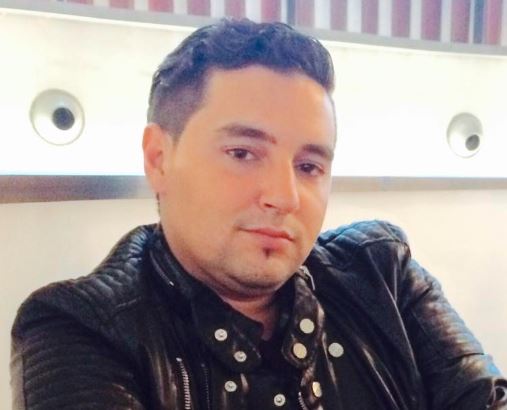
October 21, 2020, by Andrew Edwards (Ed)
Agricultural systems in The Fertile Crescent – An interview with Ali Ben Mustapha
Ali Ben Mustapha is a PhD student on the Palaeobenchmarking Resilient Agricultural Systems (PalaeoRAS) project
Why did you decide to do a PhD? What were you doing before?
I was born into a farmer’s family in north Tunisia and I love farming and the land. My ambition is to conduct research that will help farmers take the right decisions to improve the productivity and sustainability of their agricultural systems.
This PhD allows me to pursue my lifelong interests in farming and gain academic credentials to prove my expertise.
What do you study? Why is it important?
I’m working on how to understand current agricultural system functioning in Q’a Shubayqa (Jordan) and projecting future scenarios of climate change impact using crop simulation models. I am investigating present and projected agriculture system in the Fertile Crescent by running simulations on future crop yield under a range of biophysical conditions.
The importance of this research lies in predicting climate impact upon farming systems in vulnerable areas like dry land. It aims to create new strategies to adapt to the negative climate effects by using crop model simulation to enhance sustainability, whilst retaining productivity.

How do you explain your research to ordinary people?
The aim of my research is to help farmers in vulnerable area like Q’a shubayqa to keep producing food for themselves and for their livestock. I aim to convince them to adopt new farming practices that will minimise the impact of negative climate effects.
Why did you choose this particular PhD project?
I chose this particular PhD topic mainly because of the study area’s characteristics. The study area is a dryland located in the Jordan desert where producing cereals is almost impossible because of the high aridity. Despite these hard conditions, local people are nonetheless able to produce cereals and other crops.
Secondly, the study area contains very old archaeological sites (14,400 years old) where palaeoenvironmental evidence can be found to prove that people were cultivating these lands in the distant past. These local communities were able to adapt to climate change through this long period and, even today, their descendants are still producing wheat and barley.
If we can ensure that this vulnerable farming system survives into the future, it will be easier to deal with other less severely affected agricultural systems.
How was your first year? Any highlights or successes?
My first year as a PhD student was a coping year but overall it was a great experience for me, thanks to my supervisor’s support and wise mentoring. I have met new colleagues, participated in an international conference and undertaken a fieldwork trip to the study area in Jordan to collect information and build a network.
I have drafted a literature review and conducted satellite imagery analysis to understand the timings of crop development and the impact of flooding on crop yield. I finished by writing the annual review report and I look forward to the day when we can publish our final research.
Has undertaking a PhD been different from other degrees you have done?
When you are doing a PhD you can focus solely on your own work. You need to count on yourself and you need to be creative!
How do you cope with the pressure of doing a PhD?
As an international PhD student with a family (wife and daughter), all my time is directed to my research and my family, I don’t have enough time to hang out with friends. Some time when I get the chance, I do some sports.
No comments yet, fill out a comment to be the first

Leave a Reply